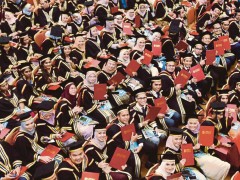News

Charting a new trajectory
Date : 29 June 2019
Reported by : Roslan Bin Rusly
Category : News
Tweet This
By Dzulkifli Abdul Razak - -
Last week Malaysian universities had a field day when the university rankings were released. There were many “jumps” that took place, giving the impression that they were “soaring upwards” in unprecedented ways.
One is now among the top 100 worldwide (based on a given set of criteria), while a handful made it to the top 50 in Asia. This is good news to some, while others are not so sure. Especially when realising that this particular exercise is still on an old trajectory as to what constitutes education. It is no longer adequate, in fact, it is too narrow to give a holistic meaning.
Last week, two groups of educators-cum-practitioners met at the United Nations Educational, Scientific and Cultural Organisation (Unesco) headquarters in Paris and at the International Islamic University Malaysia, Gombak. The former were mainly from Europe while the latter were from Asia.
Both interacted in a two-day session to elucidate how higher education can better embrace Education 2030, also known as Education for Sustainable Development (ESD) in meeting the 17 Sustainable Development Goals (SDGs, 2016-2030).
This is indeed the “new” trajectory that emphasises on the future of education using a totally different language, worldview and terminology.
Foremost, it is rooted in “collaboration” and not “competition”. It also emphasises on “inclusiveness” and “shared prosperity” and not a “winner-takes-all” approach. It further celebrates “diversity” and “balance”, and not the “one-size-fits-all” mode. There are many more, but suffice to say, it is focused on the “complete (holistic) person” in humanising education, and not the reverse that promotes only human capital as it is today.
Simply put, we need to create the next (revolutionary) paradigm for future education and launch a fresh narrative for the 21st century and beyond. Ultimately, it has to provide the most appropriate “responses” for the emerging Anthropocene era, the Post-Materialist framework, and overarching targets of ESD for a sustainable future.
It is the call of the future that education must commit to. Short of this it will bring more doom and gloom as education gets dehumanised through the factory-like entities called “universities” which came out of the industrial revolution when we are now in the post-industrial era.
Putting all of these in the scheme of things, the existing ranking exercise is totally out of sync and out of context as to the future that we deserve. In other words, it has finally outlived its usefulness and to go on subscribing to it is mindless. And it continues to promote “unsustainability” (read, money and time wasting) as our options are fast running out. Now that Malaysia has already proven itself in making it to the top by pulling the “right” strings, and pushing the “correct” buttons, it is time to pause and contemplate on what is next.
This calls for bold academic decisions in the quest for the higher purpose of education in the post-industrial/material age. It must be deeply meaningful and relevant so as to bring out higher intellectual returns for the betterment of the future. It must also be “shared” in all manner and form, and all silos must be brought down so that knowledge can converge into wisdom. Failure to do so would mean the price to pay would be tragic despite being avoidable.
The most recent reminder is what is unfolding in Pasir Gudang, Johor, where schools are experiencing another agonising ordeal directly due to an “unsustainable” approach to development. More than a hundred schoolchildren were “suffocated” by toxic air that caused them to be hospitalised, and virtually all nearby schools have been ordered closed after the situation further deteriorated.
It was not too long ago that a similar tragedy occurred in the same vicinity due to chemicals being irresponsibly dumped in Sungai Kim Kim. These occurrences send a clear signal that ESD has been compromised for far too long.
Now that we are at the threshold of initiating the 12th Malaysia Plan (12MP —2021-2025), it is time to initiate a “new” trajectory and move out of the old one.
We must search, (re)define and introduce “new” thinking and values that humanise what the 2015 World Education Forum envisaged as the future of education for all. It is imperative to keep this at the forefront of our thoughts as 2020 has always been regarded as an inflexion point to rise above the “errors” of the past.
To ignore this is to forsake the invaluable opportunities in translating into reality the noble and futuristic National Education Philosophy (NEP) that has been laid to waste (irresponsibly) for more that 30 years today.
The 12MP must, therefore, breathe life into the NEP in (re)constructing the “new” trajectory for education forward. A chance that must not be squandered again.
The writer, an NST columnist for more than 20 years, is International Islamic University Malaysia rector
Source :https://www.nst.com.my/opinion/columnists/2019/06/500000/charting-new-trajectory








